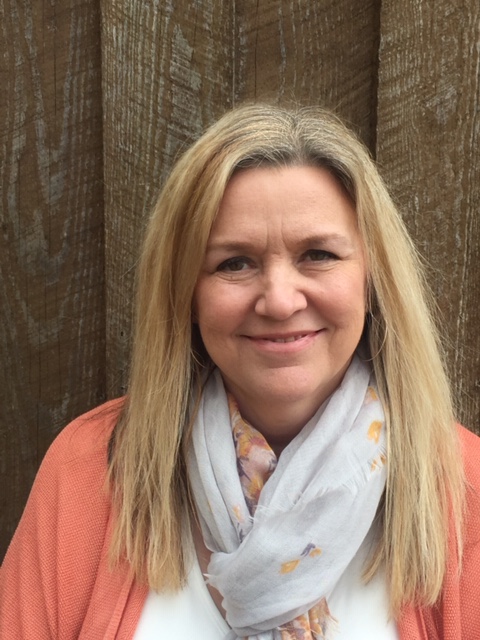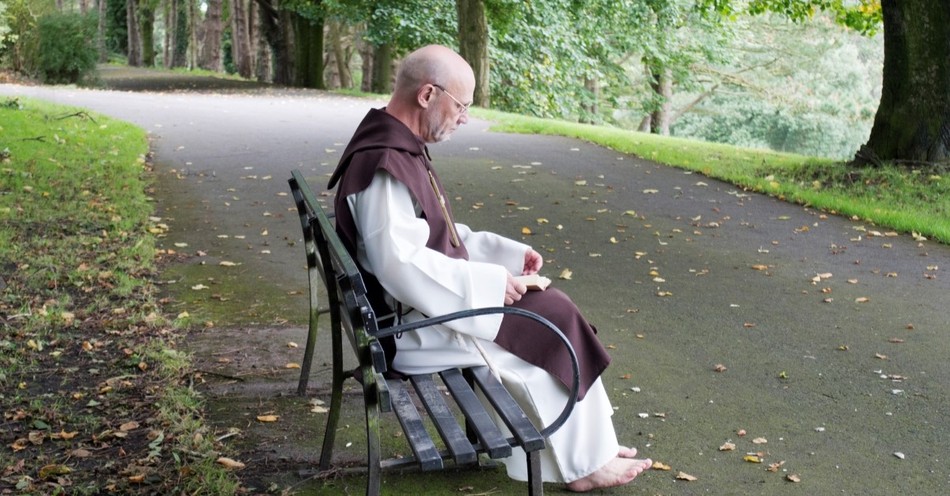A Trappist monk beloved across denominations, Thomas Merton, wrestled with subjects that are still relatable today. So, what should we know about him?
Who Was Thomas Merton?
Thomas Merton was a prolific author, Roman Catholic monk, social critic, and poet. Many called him “one of the twentieth century’s most influential spiritual leaders.” During a time of heightened animosity between Protestantism and Catholicism, Merton created an interfaith dialogue by helping both denominations establish mutual respect through their commonalities, without sacrificing their doctrinal beliefs.
What Are Some Key Events in the Life of Thomas Merton?
In 1915, Thomas Merton was born in France to two artists who lived a Bohemian lifestyle with no religious sway. His father was a native of New Zealand, and his mother was an American. That same year, his family moved to New York, where Merton’s mother lost her battle with cancer in 1921. He was only six years old.
He and his younger brother, John Paul, stayed with their grandparents in the United States until Merton returned to France, where his father had lived since his wife’s death. At 11, Merton attended several boarding schools in France and England. His father passed away when he was 15.
Soon after his father’s death, Merton traveled abroad to explore the meaning of life as he navigated life as an orphan. One night, while in Rome, Anthony T. Padovano, a founding member of the International Thomas Merton Society, shares how Merton believed he was visited by his father’s presence, calling him to abandon self-indulgence and pursue a life of spiritual connections. Padovano referred to this intense experience as “shattering” and one that Merton vividly carried with him throughout life. Although this pivotal moment didn’t fully convert him, it catalyzed his baptism, which took place five years later.
While in Rome, he was also drawn to the Byzantine mosaics, sparking his interest in religion, but this interest faded into the background when he began studying at Cambridge University. Unfortunately, Merton’s enthusiasm for social life cost him dearly, including the possibility of returning for a second year, so he returned to the United States to attend Columbia University in New York.
While there, Mertlong developed life-long friendships, and his zeal for writing and spiritual curiosity expanded. Then, in 1938, he was baptized into the Catholic Church at Corpus Christi Church.
Merton attempted to become a Franciscan, an order founded by Francis of Assisi that promotes a life that rejects luxury, focusing instead on ministry, especially to the poor, but was rejected. The denial was likely due to his lifestyle at Cambridge—including possibly fathering an illegitimate child.
In the early 1940s, Merton’s desire to be a monk increased while teaching at St. Bonaventure University in New York. In 1941, he was accepted as a postulant at the Abbey of Our Lady of Gethsemani in Bardstown, Kentucky, by Abbot Frederic Dunne. Merton was later accepted as a novice, meaning he lived in the religious community for one year to learn from them and, in turn, for the community to observe him in deciding if his calling was true. This probation time was necessary for those desiring to enter the monastic life.
While there, Dunne recognized Merton’s writing talent and encouraged him to write an autobiography which later became a best-selling classic, The Seven Storey Mountain, published in 1948.
Merton lived as a monk at Gethsemani for 27 years. He authored over 50 books on various topics, including controversial themes such as racial injustice, nuclear war, and violence.
Merton became increasingly interested in Eastern philosophy and Asian religions, especially Buddhism. Then, in 1968, he was accidentally electrocuted at a religious conference during a trip to Bangkok, Thailand. He died 27 years to the day of his arrival at Gethsemani.
What Is Thomas Merton Best Known For?
Thomas Merton is best known for being the first to create an open dialogue with Eastern religious leaders, such as Dalai Lama, and his desire to introduce their beliefs concerning humanity to Roman Catholicism.
However, it’s important to note that Merton’s focus wasn’t to sway Catholics doctrinally but to create space for conversations concerning basic human needs, such as caring for the poor, treating others with respect, and justice despite their cultural differences. And in doing so, become a better person, a better Catholic, and a better Christian.
Quotes by Thomas Merton
1. “I will be a better Catholic, not if I can refute every shade of Protestantism, but if I can affirm the truth in it and still go further.” — Conjectures of a Guilty Bystander
2. “If you want to identify me, ask me not where I live, or what I like to eat, or how I comb my hair, but ask me what I am living for, in detail, ask me what I think is keeping me from living fully for the thing I want to live for.” — My Argument with the Gestapo
3. “Our idea of God tells us more about ourselves than about Him.” — New Seeds of Contemplation
4. “Keeping a journal has taught me that there is not so much new in your life as you sometimes think. When you re-read your journal, you find out that your latest discovery is something you already found out five years ago. Still, it is true that one penetrates deeper and deeper into the same ideas and the same experiences.” — The Sign of Jonas
5. “Pride makes us artificial, and humility makes us real.” — No Man is An Island
6. “By reading the scriptures I am so renewed that all nature seems renewed around me and with me. The sky seems to be a pure, a cooler blue, the trees a deeper green. The whole world is charged with the glory of God, and I feel fire and music under my feet.” — The Sign of Jonas
7. “By faith we know God without seeing Him. By hope we possess God without feeling His presence.” — No Man is An Island
8. “The man who fears to be alone will never be anything but lonely, no matter how much he may surround himself with people. But the man who learns, in solitude and recollection, to be at peace with his own loneliness, and to prefer its reality to the illusion of merely natural companionship, comes to know the invisible companionship of God.” — No Man is An Island
9. “People may spend their whole lives climbing the ladder of success only to find, once they reach the top, that the ladder is leaning against the wrong wall.” — The Power and Meaning of Love
10. “One of the most important—and most neglected—elements in the beginning of the interior life is the ability to respond to reality, to see the value and beauty in ordinary things, to come alive to the splendor that is all around us in the creatures of God.” — No Man Is An Island
10 Inspirational Books by Thomas Merton
1. The Seven Storey Mountain: An Autobiography of Faith. In Merton’s autobiography, published in 1948, Thomas Merton describes his journey in seeking discernment for his calling, his search for God, and his monastic life. It’s interesting to note it omits many sordid details about his life as a young man, most likely due to the censorship of the monks.
2. Thoughts in Solitude. Because our inner lives are tempted to follow suit in a world filled with noise and distractions, this book is an oasis for the soul as Merton expresses the beauty and importance of silence, solitude, and meditative prayer. In it, he states that readers don’t have to be monks to connect with God through these spiritual disciplines in everyday life. While Merton’s books are decidedly written from a Catholic perspective, this book, perhaps more than any of his others, offers practical ways for anyone to draw close to God.
3. When the Trees Say Nothing: Writings on Nature. Kathleen Deignan takes passages from Merton’s work on nature and arranges them with John Giuliani’s drawings, creating a beautifully illustrated, thought-provoking book.
4. A Year with Thomas Merton: Daily Meditations from His Journals. This book invites readers to spend a year with Merton by reading his journals and enjoying his drawings and photographs. While inspiring, some reviewers criticized it for his seeming self-centeredness.
5. The Collected Poems of Thomas Merton. This collection includes most of Merton’s poetry, including unpublished work. Beginning as early as his years at Columbia and finishing shortly before his untimely death, his poetry could be considered sporadic in subject and technique.
6. The Sign of Jonas. Some readers consider this book a sequel to The Seven Storey Mountain, for it chronicles his journals from 1946-1952, revealing that saints are human too. His entries give readers a sense of Merton’s transparency with himself and others as he matures spiritually.
7. No Man is An Island. This book re-visits Merton’s previous book, Seeds of Contemplation, emphasizing the meaning of life and the importance of asking ourselves the right questions to make faith a part of everyday life.
8. My Argument with the Gestapo. Of all the books Merton wrote, this autobiographical novel is the book he most wanted to see in print. Although written in 1941, it wasn’t published until 1968, after his death. In it, Merton tells of a young man and his imaginary travels from London to France at the onset of World World II. It also helps to fill in the gaps in his story in The Seven Storey Mountain. It’s unusual because it’s written in a macaronic style—meaning a mixture of languages, like French, Spanish, German, and Italian.
9. Come into the Silence: 30 Days with Thomas Merton. This user-friendly devotional is part of the Great Spiritual Teachers series. It is a cherished collection of morning and evening prayers, inviting readers to embrace silence and all it holds concerning our walk with God.
10. Praying the Psalms. This compact book reflects Merton’s belief that the Psalms are poetry. His selections highlight the beauty of praying the Psalms, but critics quickly point out the many editing errors, making it difficult for some readers to enjoy this pithy treasure. Merton fans, however, find it an insightful classic.
Photo Credit: Getty Images/StephM2506

This article is part of our People of Christianity catalog that features the stories, meaning, and significance of well-known people from the Bible and history. Here are some of the most popular articles for knowing important figures in Christianity:
How Did the Apostle Paul Die?
Who are the Nicolaitans in Revelation?
Who Was Deborah in the Bible?
Who Was Moses in the Bible?
King Solomon's Story in the Bible
Who Was Lot's Wife in the Bible?
Who Was Jezebel in the Bible?
Who Was the Prodigal Son?









